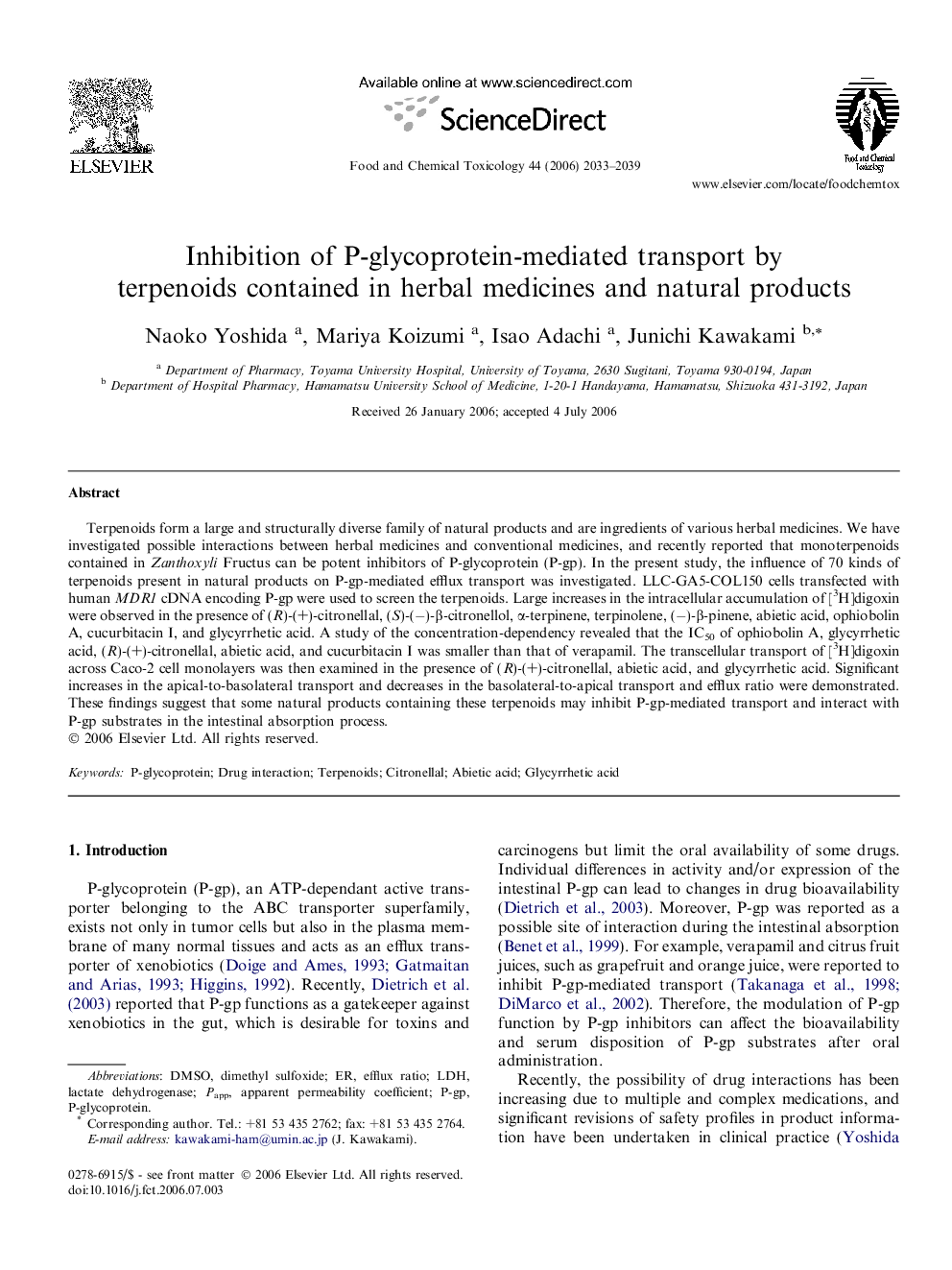| Article ID | Journal | Published Year | Pages | File Type |
|---|---|---|---|---|
| 2587738 | Food and Chemical Toxicology | 2006 | 7 Pages |
Terpenoids form a large and structurally diverse family of natural products and are ingredients of various herbal medicines. We have investigated possible interactions between herbal medicines and conventional medicines, and recently reported that monoterpenoids contained in Zanthoxyli Fructus can be potent inhibitors of P-glycoprotein (P-gp). In the present study, the influence of 70 kinds of terpenoids present in natural products on P-gp-mediated efflux transport was investigated. LLC-GA5-COL150 cells transfected with human MDR1 cDNA encoding P-gp were used to screen the terpenoids. Large increases in the intracellular accumulation of [3H]digoxin were observed in the presence of (R)-(+)-citronellal, (S)-(−)-β-citronellol, α-terpinene, terpinolene, (−)-β-pinene, abietic acid, ophiobolin A, cucurbitacin I, and glycyrrhetic acid. A study of the concentration-dependency revealed that the IC50 of ophiobolin A, glycyrrhetic acid, (R)-(+)-citronellal, abietic acid, and cucurbitacin I was smaller than that of verapamil. The transcellular transport of [3H]digoxin across Caco-2 cell monolayers was then examined in the presence of (R)-(+)-citronellal, abietic acid, and glycyrrhetic acid. Significant increases in the apical-to-basolateral transport and decreases in the basolateral-to-apical transport and efflux ratio were demonstrated. These findings suggest that some natural products containing these terpenoids may inhibit P-gp-mediated transport and interact with P-gp substrates in the intestinal absorption process.
